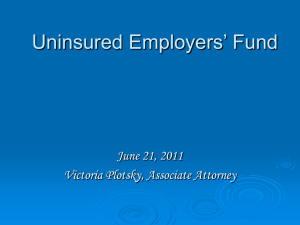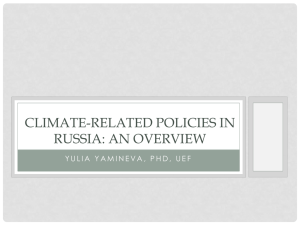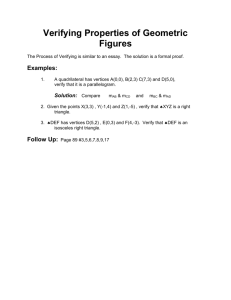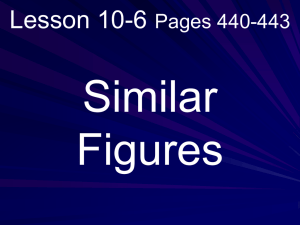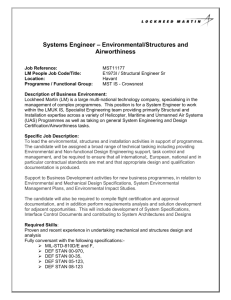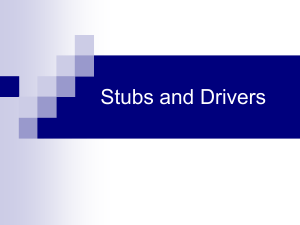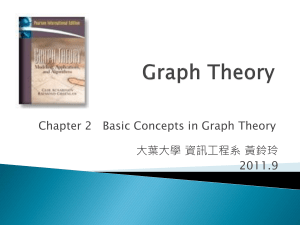DOC - New Zealand climate change information
advertisement
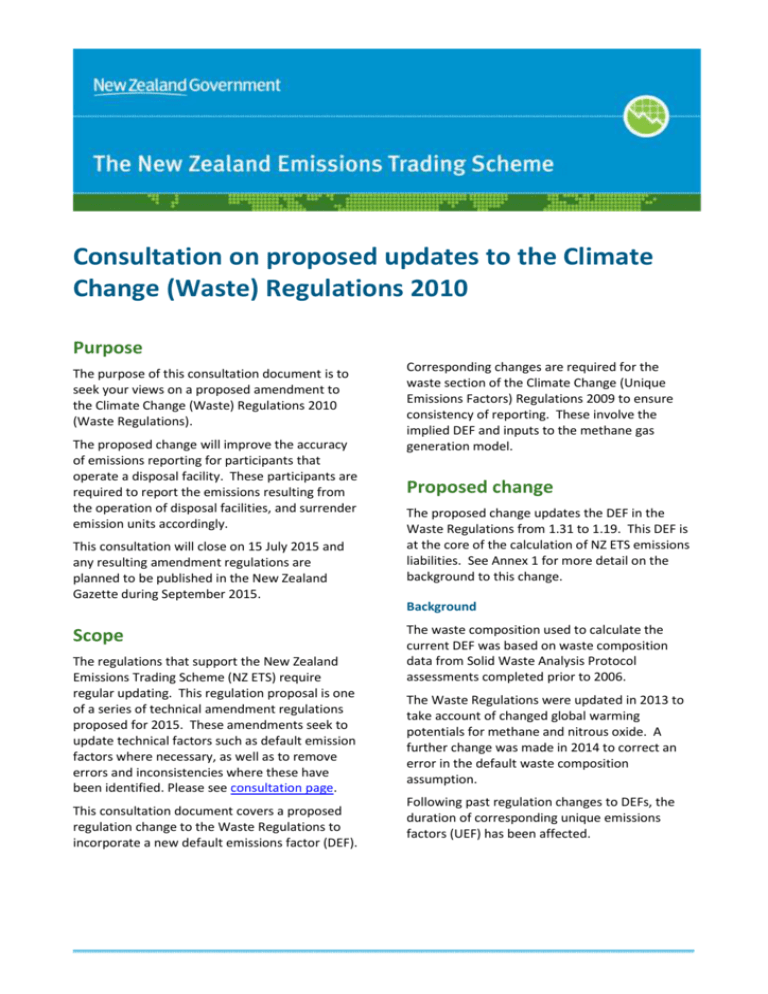
Consultation on proposed updates to the Climate Change (Waste) Regulations 2010 Purpose The purpose of this consultation document is to seek your views on a proposed amendment to the Climate Change (Waste) Regulations 2010 (Waste Regulations). The proposed change will improve the accuracy of emissions reporting for participants that operate a disposal facility. These participants are required to report the emissions resulting from the operation of disposal facilities, and surrender emission units accordingly. This consultation will close on 15 July 2015 and any resulting amendment regulations are planned to be published in the New Zealand Gazette during September 2015. Scope The regulations that support the New Zealand Emissions Trading Scheme (NZ ETS) require regular updating. This regulation proposal is one of a series of technical amendment regulations proposed for 2015. These amendments seek to update technical factors such as default emission factors where necessary, as well as to remove errors and inconsistencies where these have been identified. Please see consultation page. This consultation document covers a proposed regulation change to the Waste Regulations to incorporate a new default emissions factor (DEF). Corresponding changes are required for the waste section of the Climate Change (Unique Emissions Factors) Regulations 2009 to ensure consistency of reporting. These involve the implied DEF and inputs to the methane gas generation model. Proposed change The proposed change updates the DEF in the Waste Regulations from 1.31 to 1.19. This DEF is at the core of the calculation of NZ ETS emissions liabilities. See Annex 1 for more detail on the background to this change. Background The waste composition used to calculate the current DEF was based on waste composition data from Solid Waste Analysis Protocol assessments completed prior to 2006. The Waste Regulations were updated in 2013 to take account of changed global warming potentials for methane and nitrous oxide. A further change was made in 2014 to correct an error in the default waste composition assumption. Following past regulation changes to DEFs, the duration of corresponding unique emissions factors (UEF) has been affected. Status Quo The status quo is that waste participants’ emissions obligations are determined using the existing DEF of 1.31 tCO2e/t(waste). Problem definition There is evidence1 that, over time, waste composition is changing across New Zealand. The current Waste Regulations DEF overstates emissions by about 10% relative to a DEF calculated using the most recent average waste composition data available. Past changes to Waste Regulations have resulted in the expiry of waste sector UEFs. This consultation document seeks to ensure that all waste participants are aware of the proposed changes. In addition, feedback ensures the Minister has all relevant information when considering how best to address this problem. Options analysis The option to update the DEF is compared with the status quo. Option one Amend the Waste Regulations to reduce the DEF from 1.31 to 1.19 Option two Status quo where no changes to regulations occur. Option one avoids an apparent over-estimation of waste emissions by about 10% from the existing DEF relative to use of a DEF based on more recent waste composition data. The points of difference between the two options are that option one improves: effectiveness, equity and environmental integrity relative to option two. The NZ ETS should apply the most accurate methodologies wherever feasible. Option two does not address the apparent inaccuracy. Preferred option The preferred option is to adjust the DEF in the Waste Regulations and improve accuracy of disposal facility emissions reporting. Because past Waste Regulations DEF changes have resulted in the expiry of some waste-related UEFs, participant views on timing of the proposed changes will be especially important. The initial preference is for the changes to take effect from 1 January 2016. Impact assessment Option one will reduce participant liabilities by about 10% and improve the accuracy of reporting accordingly. Option two would result in emissions reporting inconsistent with recent waste composition data. The timing options considered could have the changes take effect from 1 January 2016 or 1 January 2017. Note that a significant change to the DEF is likely to result in a UEF granted under the current UEF settings expiring, requiring either a reapplication or movement to the use of the DEF option. Hence UEF holders please take this into account when providing your response. Implementation timetable The following implementation timetable relates to this proposed change to the Waste Regulations DEF. Consultation 2 July 2015 – 15 July 2015 Regulations amended Prior to 30 September 2015 Regulations in force 1 January 2016 or 1 January 2017 1 “Reviewing the 2008 National Waste Composition Estimate and Producing a 2012 Estimate”, Waste Not Consulting, 2013 on behalf of MfE. Consultation Questions Updating the waste DEF to reflect recent waste composition analysis 1. Do you support the proposal to update the Waste Regulation 5(1) so the DEF changes from 1.31 to 1.19? 2. Does this proposal affect any UEF you hold granted under existing UEF Regulations? Assume the change to this DEF is regarded as material. 3. When do you think this change should apply from? 4. How often (e.g. every 3 or 5 years) do you think the DEF should be reviewed in the future, and why? Please note that comments are also sought on aligning the UEF Regulations with this change; please see the UEF consultation document that follows below. You can consolidate your responses into a single response, but please label clearly. Have your say About the submission process Please send your submission by email to: etsconsultation@climatechange.govt.nz If you are unable to email your submission then please post it to: The closing date for submissions is: 5pm Wednesday 15 July 2015. ETS Regulations updates 2015 Ministry for the Environment PO Box 10362, Wellington 6143 Find out more www.climatechange.govt.nz/ets. Phone: 0800 CLIMATE (254 628) Next steps Submissions will be analysed by the Ministry for the Environment and reported to the Minister for Climate Change Issues for final decisions. Updates about the process will be provided on the Climate Change website: www.climatechange.govt.nz. About submissions The Ministry for the Environment may publish all or part of any written submission on the Climate Change website. We will consider you to have consented to such publishing by making a submission, unless you clearly specify otherwise in your submission. The content of submissions is subject to the Official Information Act 1982. Copies of submissions sent to us will normally be released in response to an Official Information Act request from a member of the public. If you object to the release of any information contained in your submission, please clearly state this in your submission, including which part(s) you consider should be withheld, together with the reason(s) for withholding the information. We will take into account all such objections when responding to requests for copies of, and information on, submissions to this document. If you do not wish your name and any identifying details in your submission to be released in response to a request, please clearly state this in your submission. At your request, we will make your submission anonymous before it is published on the Climate Change website. However, please note that the Ministry for the Environment will not be able to withhold any information if doing so would contravene the requirements of the Official Information Act. Published in July 2015 by the Ministry for the Environment PO Box 10362, Wellington 6143 Publication No: INFO 744 Annex 1: Summary of composition and resulting DEF changes from a Tonkin & Taylor report for the Ministry for the Environment2 Component Percentage of component in waste – existing regulations Percentage of component in waste – proposed regulations Garden waste 9.2 8.3 Nappies and sanitary 2.7 3.0 Putrescibles other than garden waste 12.3 16.8 Paper 14.9 10.7 Sewage sludge 5.0 3.9 Timber 13.9 11.9 Textile waste 3.9 5.6 Inert 38.1 39.8 0.1746 0.1584 DOC fraction in total waste stream 2 Existing DEF tCO2e/t(waste) Proposed DEF tCO2e/t(waste) 1.31 1.19 “Evaluate experiences with NZ ETS waste and UEF regulations: Possible regulation improvement” Report from Tonkin & Taylor to MfE, June 2015. Consultation on proposed updates to the Climate Change (Unique Emissions Factors) Regulations 2009 Purpose Proposed change The purpose of this consultation document is to seek your views on two proposed updates to the Climate Change (Unique Emissions Factors) Regulations 2009 (UEF Regulations). 1. Aligning the UEF Regulations to ensure consistency following a proposed change to the DEF in the Waste Regulation Both changes affect participants who report emissions from the operation of a disposal facility (landfill) using a unique emission factor (UEF). Background NZ ETS participants for operating a landfill facility calculate their emissions by either: This consultation will close on 15 July 2015 and any resulting amendments would be published in the New Zealand Gazette during September 2015. Scope The regulations that support the operation of the New Zealand Emissions trading Scheme (NZ ETS) require regular updating. The proposed amendments seek to update technical factors such as default emission factors where necessary, to remove errors and inconsistencies where these have been identified. Please see consultation page. This consultation document covers two proposed regulation changes to the UEF Regulations. The first proposal would align the UEF Regulations with a proposed change to the default emissions factor (DEF) in the Climate Change (Waste) Regulations 2010 (Waste Regulations) to ensure consistency of reporting. The second is to clarify rules concerning the input of historical data to the landfill model used for estimating emissions. 1 “Reviewing the 2008 National Waste Composition Estimate and Producing a 2012 Estimate”, Waste Not Consulting, 2013 on behalf of MfE. 1. Using the DEF stated in the Waste Regulations; or 2. Calculating and applying for a UEF as stated in the UEF Regulations. One element of the UEF calculations references the DEF. For consistency and fairness the DEF details need to be the same in the Waste Regulations and the UEF Regulations. The waste composition underlying the existing DEF was based on data from Solid Waste Analysis Protocol assessments completed prior to 2006. There is evidence that, over time, waste composition is changing across New Zealand. A more recent review of waste composition data 1 has been completed. This was used to re-estimate the Waste DEF (by Tonkin & Taylor) and is included in the Waste Regulations proposal (above) where the proposed DEF reduces from 1.31 to 1.19.2 A change to the Waste Regulations means that the UEF Regulations also need updating. 2 Evaluate experiences with NZ ETS waste and UEF regulations: Possible regulation improvement” Report from Tonkin & Taylor to MfE, June 2015. Status Quo The status quo is that waste participants’ emissions obligations reported under the existing UEF Regulations would be over-stated relative to reporting using the updated Waste Regulations DEF. Option two would mean a misalignment between the DEFs and UEFs in the respective regulations. Preferred option The preferred option is option one and that the changes take effect from 1 January 2016. Problem definition Impact assessment If the UEF Regulations are not updated to reflect proposed changes to the DEF in the Waste Regulations, the UEF Regulations will over-state emissions by about 10%. UEFs are intended to reflect actual emissions. Option one will reduce participant liabilities by about 10% and ensure consistency of emissions reporting. This proposal seeks to align the implied emissions factor in the UEF Regulations to the proposed amendments to the DEF in the Waste Regulations. In addition changes are required to the model input assumptions in UEF regulations Schedule 3 with the revised composition data underlying the updated DEF. Past changes to waste regulations have resulted in the expiry of waste sector UEFs. This consultation document seeks to ensure that all waste UEF participants are aware of the proposed changes and the importance of their timing. Options analysis Two options are being considered concerning this proposal to address the inconsistency: Option one: Amend the UEF Regulations so the implied DEF is reduced from 1.31 to 1.19 and update the default composition plus Lo and k values in the Schedule Option two: Option two would result in inconsistent reporting between the Waste and UEF Regulations. Timing issues Clearly both the Waste and UEF Regulation changes need to occur together. Two timing options have been considered because of UEF expiry effects. The two options are for the changes take effect from either 1 January 2016 (Officials’ preference) or 1 January 2017 (alternative). Previous changes to UEF Regulation have had consequences for the duration of some waste (UEFs). This is because holders of a UEF are required to calculate the impact of a change in the UEF Regulations on their UEF, and this impact on the duration of UEFs is assessed by the Environmental Protection Authority 3 on a caseby-case basis. The potential impact of past Waste and UEF Regulations changes on some waste-related UEFs means that participants’ views on timing of the proposed changes will be especially important. Status quo where no changes to UEF Regulations occur. Option one avoids an over-estimation of waste emissions reporting in the UEF regulations by about 10% relative to reporting using the updated Waste Regulations. This inconsistency negates the purpose of UEF, which is to enable more accurate reporting of emissions. The points of difference between the two options are that option one improves: effectiveness, equity and environmental integrity relative to option two. The NZ ETS should apply the most accurate methodologies wherever feasible. 3 The Environmental Protection Authority administers the NZ ETS for non-forestry and agriculture sectors. 2. Clarifying the rules for inputting historical data to the landfill model in UEF regulation 23C(2)(ii)(B) Background Historical waste tonnages are used to calculate landfill gas emissions if landfill weighbridge data is not available. UEF Regulations (23C(2)(ii)(B)) presently specifies use of the average filling rate for the period until weighbridge data is available. Analysis using a gas generation model indicates that where the historical pattern of disposal to the landfill varies (e.g. low then high, or vice versa) different landfill gas generation rates are obtained. Status quo For disposal facilities without historical weighbridge data, historical inputs to the gas generation model remain the average over the pre-weighbridge period. 2. Those with credible annual disposal data can use this information for the gas generation model; and 3. Those without credible annual disposal data use an average input value for the gas generation model. Impact assessment There are about 15 landfill sites that do not have historical weighbridge data that could potentially be affected by this change. It is uncertain how many of these hold historical input data and could potentially report more accurately. If a landfill has relatively higher input values during the early part of its historical (preweighbridge) period its landfill gas generation pattern will differ from a similar landfill with either a uniform input pattern or one that has low then high historical inputs. The impact on a particular landfill relative to the status quo (assumed uniform historical inputs) will depend on its individual input pattern. Problem definition Some of these landfills may have annual disposal data (from sources other than a weighbridge). So the present wording of UEF Regulation 23C(2)(ii)(B), which requires use of the average value, will result in a less accurate gas generation estimate than may otherwise be possible. Options analysis Two options are being considered, one addresses the inaccuracy introduced by the requirement to use an average historical input to the gas generation model, and the other the status quo: Option one: Change UEF Regulation 23C(2)(ii)(B) so annual historical data can be used where available. Implementation timetable The following implementation timetable relates to the two proposed changes to UEF Regulations. Consultation 2 July 2015 – 15 July 2015 Regulations amended Prior to 30 September 2015 Regulations in force Proposal 1 1 January 2016 or 1 January 2017 Option two: Proposal 2 Status quo where no changes to UEFs regulations occur. 1 January 2016 Preferred option Officials’ preferred option is to amend the UEF Regulations so that: 1. Those with full weighbridge data use that; and Consultation Questions Proposal 1: Updating UEF Regulations 23C(1)(g) and Schedule 3 to ensure consistency following a change to the DEF in Waste Regulations 5(1) a. Do you support the proposal to align the UEF Regulations with the Waste Regulations DEF changes on the same timetable as the Waste Regulations changes? b. Are there any other matters you would like considered concerning this proposed change? Proposal 2: Clarifying the rules for inputting historical data to the landfill model in UEF Regulation 23C(2)(ii)(B) a. Do you support the proposed change to allow historical landfill input data to be used to provide a more accurate estimate of landfill gas generation? b. Are you affected by this proposal? c. How are you affected? General question regarding experiences with waste related UEFs The Ministry for the Environment and the Environmental Protection Authority have noted participants’ sometimes adverse experiences with waste UEFs. These have covered matters like: the 31 January application deadline, verification costs, UEF duration, and guidance. Further refinements to regulations and guidance material are being considered for analysis and development to improve participants’ experiences. a. What matters would you like addressed or improved? b. How are you affected? c. How do you value the importance certainty of rules versus accuracy of methodologies? Have your say About the submission process Please send your submission by email to: etsconsultation@climatechange.govt.nz If you are unable to email your submission then please post it to: The closing date for submissions is: 5pm Wednesday 15 July 2015. ETS Regulations updates 2015 Ministry for the Environment PO Box 10362, Wellington 6143 Find out more www.climatechange.govt.nz/ets. Phone: 0800 CLIMATE (254 628) Next steps Submissions will be analysed by the Ministry for the Environment and reported to the Minister for Climate Change Issues for final decisions. Updates about the process will be provided on the Climate Change website: www.climatechange.govt.nz. About submissions The Ministry for the Environment may publish all or part of any written submission on the Climate Change website. We will consider you to have consented to such publishing by making a submission, unless you clearly specify otherwise in your submission. The content of submissions is subject to the Official Information Act 1982. Copies of submissions sent to us will normally be released in response to an Official Information Act request from a member of the public. If you object to the release of any information contained in your submission, please clearly state this in your submission, including which part(s) you consider should be withheld, together with the reason(s) for withholding the information. We will take into account all such objections when responding to requests for copies of, and information on, submissions to this document. If you do not wish your name and any identifying details in your submission to be released in response to a request, please clearly state this in your submission. At your request, we will make your submission anonymous before it is published on the Climate Change website. However, please note that the Ministry for the Environment will not be able to withhold any information if doing so would contravene the requirements of the Official Information Act. Published in July 2015 by the Ministry for the Environment PO Box 10362, Wellington 6143 Publication No: INFO 746
